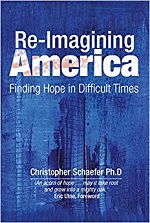|
TRANSLATE THIS ARTICLE
Integral World: Exploring Theories of Everything
An independent forum for a critical discussion of the integral philosophy of Ken Wilber
 Elliot Benjamin is a philosopher, mathematician, musician,
counselor, writer, with Ph.Ds in mathematics and psychology and the author of over 230 published articles in the fields of humanistic and transpersonal psychology, pure mathematics, mathematics education, spirituality & the awareness of cult dangers, art & mental disturbance, and progressive politics. He has also written a
number of self-published books, such as: The Creative Artist, Mental Disturbance, and Mental Health. See also: www.benjamin-philosopher.com. Elliot Benjamin is a philosopher, mathematician, musician,
counselor, writer, with Ph.Ds in mathematics and psychology and the author of over 230 published articles in the fields of humanistic and transpersonal psychology, pure mathematics, mathematics education, spirituality & the awareness of cult dangers, art & mental disturbance, and progressive politics. He has also written a
number of self-published books, such as: The Creative Artist, Mental Disturbance, and Mental Health. See also: www.benjamin-philosopher.com.
SEE MORE ESSAYS WRITTEN BY ELLIOT BENJAMIN Reducing the Political Polarization in the United StatesAn Integrative PerspectiveElliot BenjaminRecently I published an extended review essay of two books: The Depolarization of America: A Guidebook for Social Healing by existential/humanistic psychologist Kirk Schneider, and Re-Imagining America: Finding Hope in Difficult Times by political philosopher Christopher Schaefer [1].
In my extended review essay I initially summarized the crux of the theses by Schneider and Schaefer, as well as my integrative perspective [2] on their work, as follows: “Schneider's strength is in his pragmatic hands-on Experiential Democracy work to facilitate dialogue between people with intensely polarized social and political beliefs. . . . On the other hand, Schaefer's strength is in his insightful and extensive analysis of the social, political, economic, psychological, and spiritual forces that have shaped a multitude of malevolent events in both the history of and current times in America, while he also presents an uplifting personalized and spiritual social/economic/political means of overcoming these malevolent forces. . . . However, although I certainly greatly appreciate and value both Schneider's Experiential Democracy work as well as Schaefer's (2019) penetrating and extensive analysis of the malevolent forces that have shaped America coupled with his inspiring possibilities for a remedy, I believe that there are some important factors that need to be addressed more than either author has done, in order to gain a more complete and accurate understanding of what is going on here. . . . For now I will say that I believe the factors of cult indoctrination, and social media manipulation and addiction, stemming directly from US (now former) President Donald Trump, are key elements that may help round out the picture of both the polarization and the malevolent forces that have shaped, and are currently shaping, life in America.” I think that it is timely to revisit the political polarization in the United States in the light of the recent horrific violent insurrection at the Capitol building in Washington D.C. [3]. The question I still ask is how effective can the idealistic one-on-one communications of people with intensely polarized political beliefs, that Kirk Schneider described in his Experiential Democracy work, be in our current political climate chock full of cult indoctrination and social media manipulation and addiction? From some personal communications that I have had with Schneider, we have agreed that it is not an “ether or” but rather a “both and” solution. In other words, engaging in the kind of one-on-one Experiential Democracy communications that Schneider describes does not preclude the need for overarching work to alleviate the massive cult indoctrination from a variety of destructive American forces, not the least of which are Q and Trump [4]. But as the frightening nightmare of continued violence from right-wing extremists continues to dominate the American psyche as the Trump Senate impeachment trial is scheduled to begin next week, my faith in the one-on-one civil and mutually respectful communications that Kirk Schneider has described is becoming more and more shaky. When I think of the attempted assassinations of a number of high ranking Congressional leaders, and who knows what horrific plans are being made to follow through with this next week, I shudder at the thought of communicating with any of these extremists. At the same time, I understand that Schneider is talking about people who are capable of engaging in the kind of respectful communications that he describes, not these violent right-wing extremists, as he stated the following [1]: “Only try this dialogue with someone you think might want to hear your point of view. . . . [The Experiential Democracy dialogue] can be used by most anyone with a basic level of maturity and willingness to work through a cultural, political, or religious conflict with another person. . . . this is a format for the ordinary (comparatively composed) person who struggles with social, cultural, and political conflicts every day and yet has few means to address or resolve them. This is also a dialogue for people who contend with such conflicts among families, neighbors, and fellow citizens and yet who are open to addressing them. . . . These are people who share a profound concern for the alarming rates of division and strife in our country and the world at large.” I concluded my extended essay by invoking the work of psychiatrist Bandy Lee, who for the past 4 years has courageously embarked on a public education program to make people aware of the mental health dangers of former president Donald Trump [5]. But more recently, Lee has offered her knowledge of cult deprogramming for the purpose of helping Trump supporters disengage from the cultic Trump influence that they have been continually bombarded with for the past 4 years [4]. In this context, Lee has given the following wise advice [1]. [4]: “Rather than facts and arguments, other management principles should be followed with Trump supporters, as follows: . . . Reduction of exposure to 'the leader'. . . Reduction of cultic programming. . . . Change of circumstances. . . Emotional support. His [Trump's] removal from office and the accompanying reduction of exposure that his supporters have to him will automatically release many from his influence. The reduction of exposure will diminish the natural induction of highly contagious symptoms among the population that comes with having a severely mentally impaired person in an influential position: violence, paranoia, fixed false beliefs, and loss of connection with reality. Following that first intervention, the next treatment principle should be employed in order to effect a reduction of cultic programming, programming which can by itself reform thoughts and inculcate fixed false beliefs. Fox News, One America News Network, and other sites that promote right-wing conspiracy theories, as well as social media that filter information to create functional 'bubbles,' are all forms of programming that work to serve that function. . . . By removing people from the circumstances that rendered them vulnerable to predators in the first place, they can be protected from being exploited again. Now fast-forward a few months since Lee published her book [4] to the recent sequence of events that have transpired, with the inauguration of Joe Biden as our current United States president, and the removal of Trump from a number of social media sites, including Twitter and Facebook [6]. It appears that perhaps some of Lee's wise advice about how to recover from Trump-induced cult indoctrination has potential to actually happen. Thinking optimistically here, and admittedly this is by no means an easy thing for me to in the light of the attempted Capitol insurrection and who knows what else lies in wait for us, perhaps with President Biden's leadership there is at least a chance that some of what Kirk Schneider espoused in his Experiential Democracy work has the possibility of helping to reduce the political polarization in the United States? I don't know, but perhaps it makes sense to adopt this kind of an integrative perspective; i.e., engage in the absolutely necessary cultic deprogramming of Trump supporters, inclusive of maintaining Trump's banning from his influential social media sites, while gradually making efforts to communicate with them, especially through their friends and family connections, as advocated for by cult expert Steve Hassan [4]. Of course there is a great deal more dangerous, pervasive political cultic influence in the United States that is still rampant and has even made its way into the halls of Congress, under the auspices of QAnon and Marjorie Greene [4]. But given the recent inauguration of Joe Biden as President of the United States, and the far-reaching multitude of humanitarian, environmental, racial equality, immigration, and fighting the pandemic executive orders that Biden has signed during his first two weeks in office [7], I will end here on the same cautionary optimistic note that I ended my extended review essay [1]:
“With the election of Joe Biden to replace Donald Trump as President of the United States, perhaps Schneider's Experiential Democracy depolarization dialogue work, as well as Schaefer's idealistic essays about political involvement, self-renewal, and reconnection and relationships with others, may now have more of a possibility to ease the rampant polarization of America. But at the same time, I believe there is a crucial missing piece in both Schneider and Schaefer's books that I have reviewed, and this missing piece, as portrayed by Bandy Lee as the cult indoctrination of Trump followers, may very well be the essential ingredient that needs to be acknowledged, understood, and effectively dealt with in order to successfully undertake the kind of urgent constructive actions that both Schneider and Schaefer have advocated for.” Notes and References
|

